2024-25 Interdisciplinary Collaborative Research SEED Awardees
Cal State East Bay
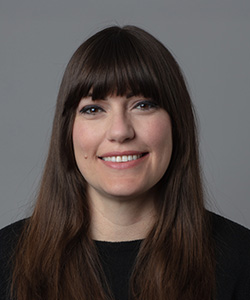
Dr. Michelle Gravier (Co-PI)
Associate Professor, College of Letters, Arts, and Social Sciences
Department of Speech, Language, and Hearing Sciences
Project Title: BRAIN: Building Relationships Aimed at Interdisciplinary Neuroscience
Neuroscience is highly interdisciplinary and has the potential to engage mentors and students across campuses. The siloed structure of departments and institutions is misaligned with the interdisciplinary nature of modern neuroscience, placing our students at a significant disadvantage. Our efforts to connect courses with practice/skill development, effective mentoring, and community building are based on high-impact and evidence-based practices and the engagement of a multi-department structure that is focused on fundamental, translational and clinical neuroscience.
Our flexible trainee-informed mentoring model will foster greater interdisciplinary research and expand training capacity across campus. Our pilot year project is centered around four objectives:
- To establish connections with Bay Area universities for Neuroscience PhD programs and diversity-focused training,
- Identify and Integrate existing Brain-Behavior courses,
- Enhance interdisciplinary mentoring activities and community engagement, and
- Develop a student recruitment plan to enhance diversity.
The Interdisciplinary STEM-NET SEED award will support foundational work to build the necessary collaborative research education partnerships to support research, mentoring, and skill development opportunities both within and across institutions.
Sacramento State
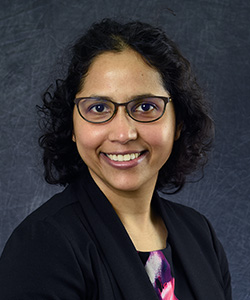
Dr. Sayonita Ghosh Hajra (PI)
Associate Professor, College of Natural Sciences and Mathematics
Department of Mathematics & Statistics
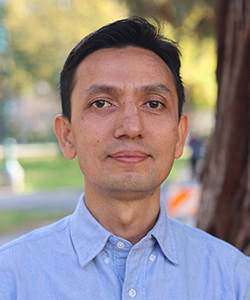
Dr. Santosh Kandel (Co-PI)
Assistant Professor, College of Natural Sciences and Mathematics
Department of Mathematics & Statistics
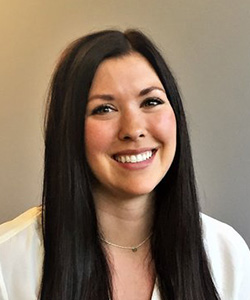
Dr. Alyssa Maples (Co-PI)
Assistant Professor, College of Social Sciences & Interdisciplinary Studies Department of Family & Consumer Sciences
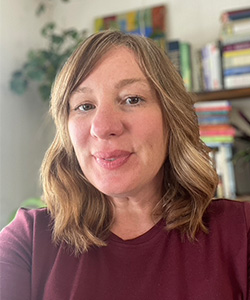
Dr. Erin Rose Ellison (Co-PI)
Associate Professor, College of Social Sciences & Interdisciplinary Studies Psychology Department
Project Title: Exploring the Impact of Mentoring Youth and Community Members through Digital Mathematical Storytelling on Undergraduate Students’ Mental Health and Well-Being
Negative myths about mathematics, such as its reliance on innate talent, lack of cultural relevance, and abstraction, hinder student learning and contribute to anxiety and disengagement. These beliefs affect not only students but also prospective teachers, who often perceive a disconnect between their coursework and teaching practices. To address these challenges, a service-learning mathematics capstone course will integrate mentoring and (digital) mathematical storytelling. In this course, aspiring teachers will create stories linking advanced mathematics to culturally relevant contexts, mentor middle and high school students in crafting their own mathematical narratives, and explore the real-world relevance of mathematical concepts.
San José State
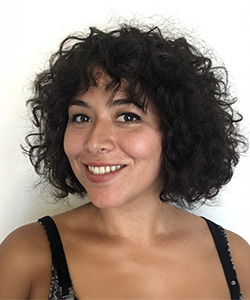
Dr. Erika Carrillo (PI)
Assistant Professor, College of Social Sciences
Department of Anthropology
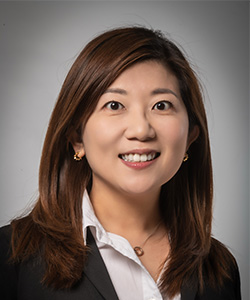
Dr. Chiao-Ju Fang (Co-PI)
Associate Professor, College of Health and Human Sciences
Department of Occupational Therapy
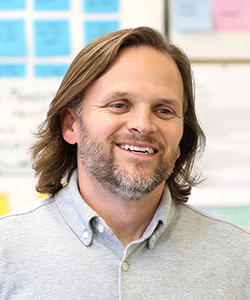
Dr. Joshua Nelson (Co-PI)
Professor, College of Humanities and the Arts
Department of Design
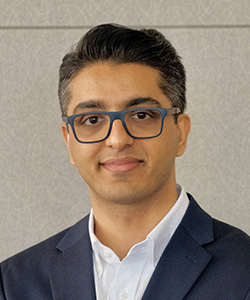
Dr. Mojtaba Sharifi (Co-PI)
Assistant Professor, College of Engineering
Department of Mechanical Engineering
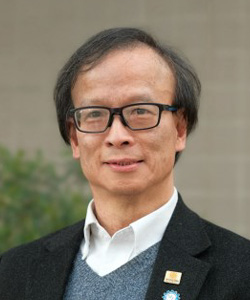
Dr. Raymond K. Yee (Co-PI)
Professor, College of Engineering
Department of Mechanical Engineering
Project Title: Smart Move: An Interdisciplinary Approach to Conceptualize and Develop an Assistive Robotic Mobility Device for People with Dementia
Our interdisciplinary project brings together researchers from the Departments of Anthropology, Design, Engineering and Occupational Therapy. Our team seeks to use robotics to improve mobility for people with dementia and aid those who provide care for them. We will employ human-centered research to study, discover and identify current mobility needs within a care facility. Then, we will analyze the information gathered and use it to create a series of innovative design concepts that explore how current needs might be addressed through assistive robotics. A functional prototype will be engineered, designed, and fabricated for pilot testing and evaluation to ensure maneuverability and situational performance. This prototype will be tested for usability, functionality and integration in real-world rehabilitation settings. The device will be assessed from client and practitioner perspectives, measured for impact on rehabilitation outcomes, and refined for overall effectiveness. By integrating diverse perspectives into the design and development of assistive robotic mobility devices, this project aims to address real-world challenges grounded in the lived experiences of people with dementia and their caregivers.
2023-24 Interdisciplinary Collaborative Research SEED Awardees
San Diego State
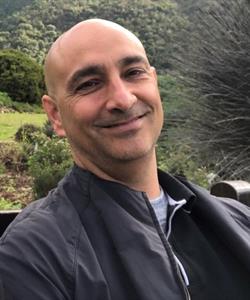
Peter Torre (Principal Investigator)
Professor
School of Speech, Language and Hearing Sciences
College of Health and Human Services
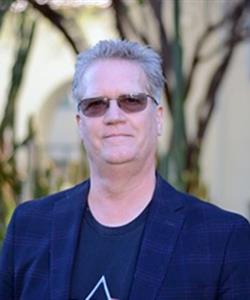
Scott Lipscomb (Co-PI)
Professor
School of Music and Dance
College of Professional Studies and Fine Arts
SEED Grant Funded Project: Noise Exposure and Hearing Sensitivity in Students Majoring in Music
This research project has two specific aims. First, to evaluate the sound levels during ensemble music practice and to compare underlying inner ear function before and after that exposure. Second, to document baseline hearing sensitivity in student musicians to follow them longitudinally to evaluate changes in hearing over their time as a student at San Diego State University. This interdisciplinary collaboration between audiology (Peter Torre) and music (Scott Lipscomb) faculty will allow us to thoroughly evaluate the hearing abilities of student musicians. The broader impact of our project includes bringing an awareness of hearing health to all student musicians as many of them begin careers as professional musicians. We hope that these students will seek annual hearing assessments as well as wear musicians’ earplugs during rehearsals and performances.
San José State

Nicole Zhang (PI)
Assistant Professor|
The Valley Foundation School of Nursing
College of Health and Human Sciences
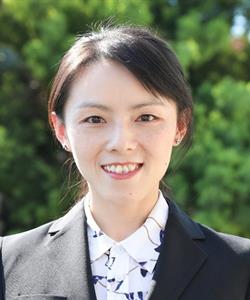
Yun Wang (Co-PI)
Assistant Professor
Department of Biomedical Engineering
Charles W. Davidson College of Engineering
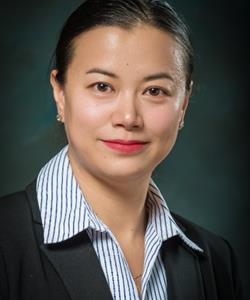
Ni Zhang (Co-PI)
Associate Professor
Department of Public Health and Recreation
College of Health and Human Sciences
SEED Grant Funded Project: Human-Centered Design of a Noninvasive Wearable Bioimpedance Sensing System for Bladder Volume Monitoring for Management of Urinary Problems
An interdisciplinary team has been assembled to design a wearable noninvasive bioimpedance bladder volume sensing system. This sensor has the potential to revolutionize urological care by providing noninvasive, unobtrusive, 24/7 real-time monitoring of bladder volume. This would obviate the need for multiple invasive and time-consuming manual bladder scans, and it would provide continuous monitoring and data input for potential machine learning tasks that are not possible with current technology. The team is taking a human-centered approach to ensure the most efficacious implementation of the device. We will explore perceptions of the device and urinary issues in hospital settings to deploy, test and develop this device for maximal impact. An interdisciplinary and human-centered approach is necessary because urinary issues in hospital settings can be related to health inequities. These health inequities and disparities in health outcomes are systematic, avoidable and unjust. They are often driven by social, economic and structural factors. Socioeconomic, gender, racial as well as educational structural disparities have been identified. The team believes that the bladder-sensing system stands to decrease costs, improve surveillance of urinary health issues, make the process of urinary problem assessment less invasive, and provide data that will minimize bias and improve patient outcomes in hospitals.
CSU Bakersfield
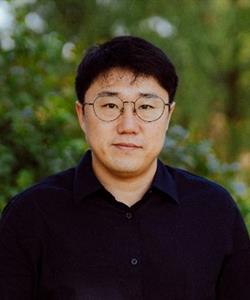
Jahyun Kim (PI)
Assistant Professor
Department of Kinesiology
School of Social Sciences and Education
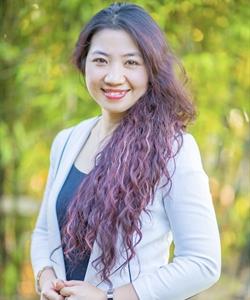
Linh N. Bui (Co-PI)
Assistant Professor
Department of Nursing
School of Natural Sciences, Mathematics, and Engineering
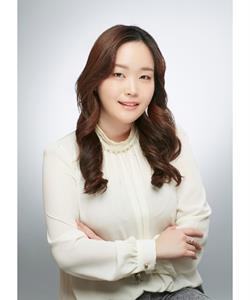
Kyung Han (Co-PI)
Associate Professor
Department of Communications
School of Arts and Humanities
SEED Grant Funded Project: Understanding Socioeconomic Status-Induced Physical Behavior Disparities and Their Associated Determinants Among Young Adults in Kern County, California
Socioeconomic status (SES)—different levels of education and household income—influences physical behaviors (e.g., physical activity (PA) and sedentary behavior) and thus mediate health outcomes in our society. Moderate- to vigorous-intensity exercise has been suggested as an intervention to prevent cardiovascular disease (CVD) progression and is inversely associated with all-cause mortality and incidence of CVD. However, such association is stronger in low SES groups, which are less likely to be involved in PA and more likely to have sedentary behaviors. Thus, disparities in health outcomes among different SES groups may be explained by PA and sedentary behaviors discrepancy. Furthermore, SES is associated with other social determinants of health (e.g., PA opportunities, access to food, etc.), attitudinal (e.g., attitude toward physical activity) and cognitive (e.g., self-efficacy—expectation to the success of individuals’ health goals) factors that impact the adoption of physical behaviors. It is important to understand the correlation between preexisting factors of behavior change (PA and sedentary behaviors) and actual suggested behaviors. Understanding such preexisting factors can also help in designing a personalized health plan with appropriate communication modalities by individual preference and health messages. Kern County is primarily rural and 21% of its residents live in poverty, the fifth-highest rate of California counties. Over half of all deaths in Kern County are attributed to chronic diseases (e.g., CVD, diabetes) and almost 80% of the population is either obese or overweight. Twenty-four percent of the county’s young adults ages 18-24 years old live below the poverty level and 23% of adults over age 20 reported no leisure-time physical activity in the last month. Young adults may be both highly active and highly sedentary, and the young population with lower SES is more vulnerable to sedentary behaviors. However, we do not know physical activity and sedentary behavior discrepancy by SES as well as its association with CVD risks among young adults in Kern County. The results of this study will contribute to the development of effective interventions to improve PA levels and decrease sedentary time that could help reduce CVD risks in different SES groups in Kern County.
Cal Poly Pomona
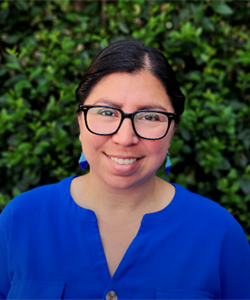
Janel Ortiz (PI)
Assistant Professor
Biological Sciences
Center for Excellence in Mathematics and Science Teaching
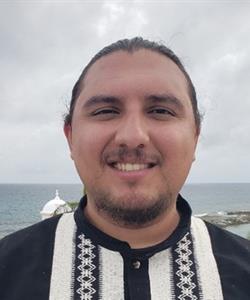
Anthony Peña (Co-PI)
Assistant Professor
Liberal Studies
College of Education and Integrative Studies
SEED Grant Funded Project: Environmental ineQuities in UrbAn Landscapes (EQUAL): Exploring the Health of Humans & Biodiversity in an Introductory Biology Laboratory CURE
Environmental (in)justice concerns have been so widespread across current events that they are becoming a high priority of many college campuses to ensure students are aware of and knowledgeable about environmental inequities. In this proposed project, we plan to design an EQUAL-course-based undergraduate research experience that will provide students the opportunity to explore the environmental inequities that exist and assess the impact on student learners in their content knowledge, perceptions, science identity, and belonging. Three major themes tied to inequities and their interactions will be addressed: human health, access to nature and biodiversity with activities related to areas such as the urban heat island effect, redlining, and green space benefits. This work will integrate ecological phenomena and environmental (in)justice into the classroom with the potential to develop solutions to improve environmental literacy and awareness in our society.
Sacramento State
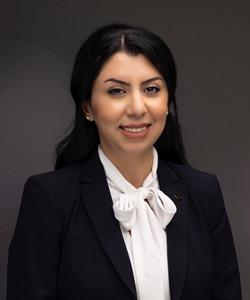
Sarvenaz Sobhansarbandi (PI)
Assistant Professor
Department of Mechanical Engineering
College of Engineering and Computer Science
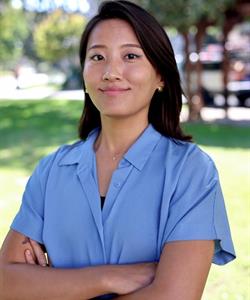
Rey Jeong (Co-PI)
Assistant Professor
Department of Art
College of Arts and Letters
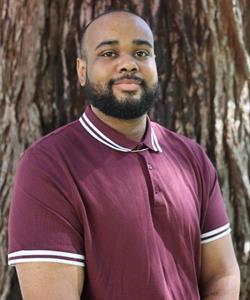
Christopher Rogers (Co-PI)
Assistant Professor
Department of Sociology
College of Social Sciences and Interdisciplinary Studies
SEED Grant Funded Project: Towards Sustainable Development Goals: Advancing Informal STEM Learning and Clean Energy Integration for Communities of Concern
This STEM-NET project aims to promote awareness and define optimal renewable solutions for low-income households, i.e., historically disenfranchised communities, through interdisciplinary collaborations (Engineering, Sociology, and Art). This study will use a multifaceted approach to gather public socio-demographic factors through various survey instruments to forecast economic patterns and population growth to better manage energy resources. The project will also investigate the effect of informal STEM learning techniques such as makerspaces, parental involvement and cartoon comics. The successive phase based on the outcome of this project will result in designing a new interdisciplinary course at California State University, Sacramento.
The proposed model in this study will culminate in a decision-making tool which will ultimately assess whether an existing/to-be-commissioned renewable energy solution is capable of producing an output greater or equal to the residential demand, resulting in sustainable development of low-income communities. This relies on conducting a widespread survey of residents within specific urban areas in order for the findings to be properly representative. To receive a larger sample of respondents, the PIs will work closely with the Community Engagement Center (CEC) at the California State University, Sacramento to help assist us with an introduction to their community organization parts that work directly with people in the community. The result of this effort provides a detailed overview of the renewable energy equipment that could effectively benefit the community and warrants consideration for the pilot project.
One big obstacle is the communication gap between engineers and the general public, which includes underserved individuals, those without access to higher education, and people in the humanities. This project aims to bridge the language gap between art, humanity, and engineering by utilizing the means of socially engaged art. The PIs assist with encouragement of local underserved high school students into STEM majors by facilitating field trips to the Sacramento State campus, providing them with proper educational background and raise awareness on the implication of renewable energy solutions in everyday household. The said workshop platform offers unique opportunities for engaging the community in hands-on activities that will allow the participants to engage, in a supervised manner, with the renewable technology solutions.
Cal State San Bernardino
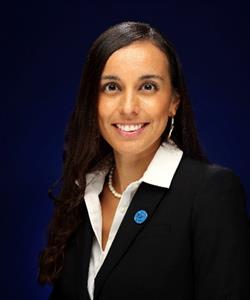
Angie Otiniano Verissimo (PI)
Associate Professor
Department of Health Science and Human Ecology
College of Natural Sciences
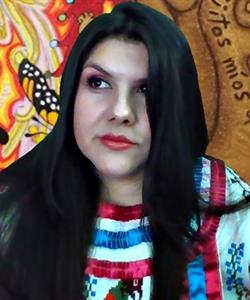
Liliana Conlisk-Gallegos (Co-PI)
Associate Professor
Department of Communication and Media
College of Arts and Letters
SEED Grant Funded Project: Decolonial Media Art and Technology as Healing: An Anti-Discrimination Substance Use Intervention
As bilingual Latina/Xicanx researchers and professors, we are enthusiastic to embark on the “Decolonial Media Art and Technology as Healing: An Anti-Discrimination Substance Use Intervention” project. Collaborating with CSUSB students, we will facilitate an interdisciplinary experience where they are mentored as active partners in the research process. By engaging community partners and employing innovative, culturally responsive methods like pláticas with promotores (community health workers), we aim to gather rich, in-depth data linking discrimination and substance use among the Latine community. Pláticas, which are rooted in Chicana/Latina feminist methodology, aim to establish a connection between the interviewer and interviewee, allow for an informal dialogue and recognize the value of the information obtained within specific cultural contexts (Fierros and Delgado Bernal, 2016). This study will incorporate rasquache virtual reality (VR) artisanal world-making, a transdisciplinary new media art methodology developed by Liliana Conlisk-Gallegos in 2020. Promotores will be asked to create immersive representations of their stories as leaders in their communities, using both analog and digital symbolic elements. These representations will encompass their communities’ narratives surrounding discrimination and substance use, expanding on traditional forms for data gathering, analysis and interpretation. The immersive VR experiences will be featured in ”Monuments to the Pluriverse,” a community-centered STEAM to STEM exhibition comprising at least 10 distinct VR worlds created by communities of the Inland Empire. This exhibition, addressing pressing issues affecting our communities—such as undocumentedness, disability experiences and quotidian educational injustice—is scheduled to open in November 2024 at CSUSB as part of the UCR ARTS Getty Museum’s Pacific Standard Time: Art x Science x LA programming.
Fresno State
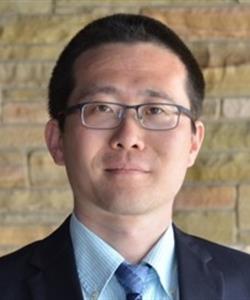
Xiangxiong Kong (PI)
Assistant Professor
Department of Civil and Geomatics
Engineering
College of Engineering
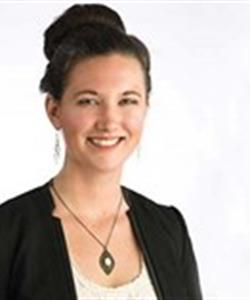
Laura Huisinga (Co-PI)
Associate Professor
Department of Art, Design, and Art History
College of Arts and Humanities
SEED Grant Funded Project: Advancing Civil Structure Inspection Through Innovative Virtual Reality Interface Design and Assessment Methods
Civil structures such as highway bridges, buildings, stadiums and dams carry significant service loads over long service times but are prone to deterioration. Developing effective structural inspection methodologies, therefore, becomes critical to ensuring their structural integrities. The goal of this research project is to explore innovative approaches for structural inspection from the perspective of virtual reality (VR) technology. The project team focuses on improving the VR interface design and enhancing the VR experience for engineers and stakeholders.
2021-22 SEED Grant Awardees
Cal Poly San Luis Obispo
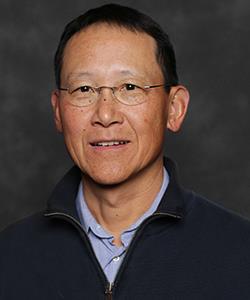
John Chen (PI)
Professor
Mechanical Engineering
California Polytechnic State University San Luis Obispo
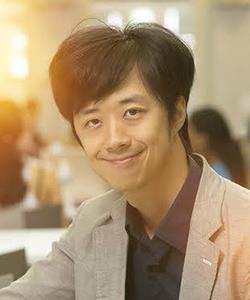
Hocheol Yang (Co-PI)
Graphic Communication
California Polytechnic State University San Luis Obispo
SEED Grant Funded Project: Turning Evidence-based Learning Competencies into Habits to Help Students Thrive
“The goal of our project is to transform a smartphone app from a research tool that we have developed over the past six years into a student-support tool that helps engineering students succeed, or even to thrive. By thrive, we mean that students are doing well academically and feeling good about themselves. We aim to do this by using the app to give students feedback on their study habits and patterns, and to help them adopt research-proven practices that lead to new competencies that are foundational to thriving.”
San José State
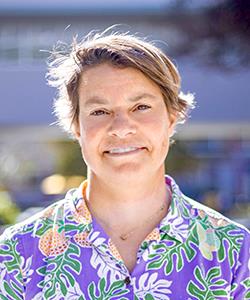
Dr. Tammie Visintainer( PI)
Assistant Professor
Science Education |Teacher Education San José State University
SEED Grant Funded Project: Transforming Science Teaching and Learning in School: Empowering Teachers and Students as Justice-Centered Science Action Researchers and Change Agents
“My larger goal is to transform science teaching and learning in K-12 schools through the promotion of community-engaged justice-centered science experiences. This grant provides the opportunity to collect pilot data, a necessary first step, in order to ground the larger initiative in teacher and student needs, interests, and community priorities”.
Cal State Fullerton
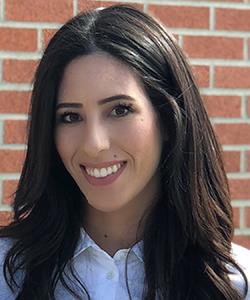
Munjy, Huda ( PI)
Assistant Professor
Civil and Environmental Engineering
California State University, Fullerton
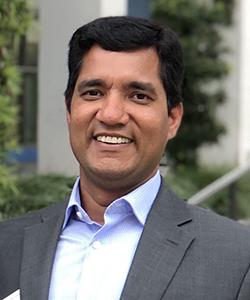 Mishra, Phoolendra (Co-PI)
Mishra, Phoolendra (Co-PI)
Department Chair & Associate Professor Civil and Environmental Engineering
California State University, Fullerton
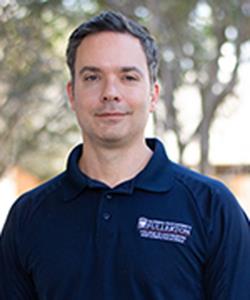
Kenneth John Faller (Co-PI)
Associate Professor
Undergraduate and Graduate Advisor
Computer Engineering Program
California State University, Fullerton
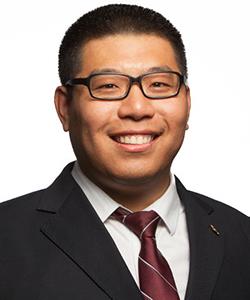
Yu Bai (Co-PI)
Assistant Professor
Computer Engineering Program
California State University, Fullerton
SEED Grant Funded Project: Improving STEM Teaching through Active-learning Tools that promote Inquiry-based Comprehension in Statics (iSTATICS)
“The goal of our research study is to decrease the historically high failure rates in fundamental engineering courses through the integration of Active Learning Pedagogies in the classroom. We will focus on integrating Team Based Learning and Virtual Reality with Artificial Intelligence Embedded Assessment in Statics, an introductory course in the Civil Engineering curriculum”.
2020-21 SEED Grant Awardees
Drs. Jim Kuo (PI)
John Bachman
Pearl Chen
Campus: Cal State LA
SEED project Funded: Using Asset-based Participatory Design Thinking to Develop Culturally-Relevant STEM Video Modules to Promote Intrinsic Motivation
Drs. Kim Elce (PI)
Julie Fogarty
Ravin Pan
Jenna Porter
Campus: Sacramento State
SEED project Funded: Supporting STEM Teacher Identity Development as a Key Strategy for Strengthening the Pipeline of Diverse STEM Educators
Drs. Lynne Slivovsky (PI)
Lauren Cooper
Jane Lehr
Campus: Cal Poly San Luis Obispo
SEED project Funded: Supporting STEM Teacher Identity Development as a Key Strategy for Strengthening the Pipeline of Diverse STEM Educators